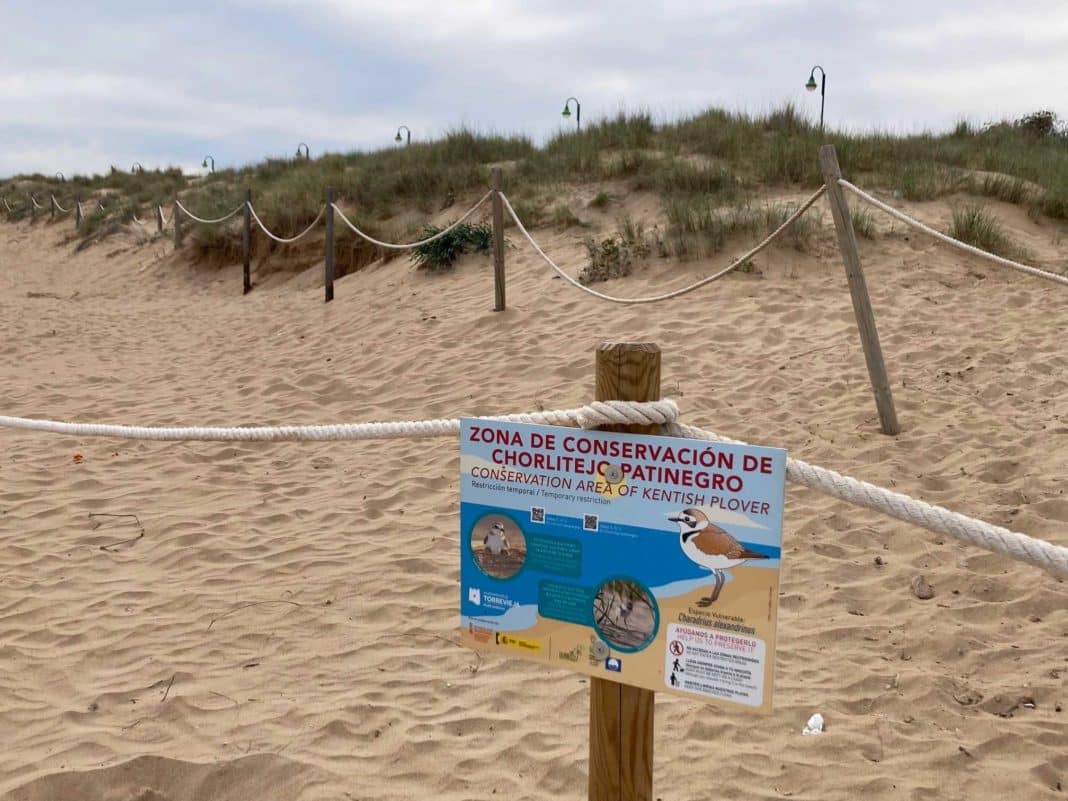Adopting conservation measures for endangered fauna in urban environments, such as La Mata beach, is an important challenge that has borne fruit for many years.
Now the Torrevieja Town Hall has once again launched its campaign to protect the Kentish Plover (Charadrius alexandrinus), one of the most endangered bird species in the country and whose nesting populations experience a successive decline year after year.
In Torrevieja it breeds mainly in the Natural Park of the lagoons of La Mata and Torrevieja, but a few pairs also choose the dune system of the Paraje Natural Municipal “Molino del Agua”, located on the beach of La Mata, the most important beach in the city.
The main threat to nests in this dune system is the presence of unleashed dogs and crowds of people. For this reason, every year a wooden and rope fence is erected to try to free up a strip of beach for the kentish plovers, allowing them to use the rest of the beach. But even so, if there are loose dogs running on the beach or trespassing on the fence, the birds do not manage to build their nests.
Adopting conservation measures for endangered fauna in urban environments, such as La Mata beach, is an important challenge. However, little can be done without the collaboration of the public: users of La Mata beach in its central area should avoid invading the fenced areas and reduce the presence of dogs, which, if brought, should always be kept on a leash and should walk as close to the shore as possible.
The experience accumulated by the Torrevieja Town Council in the practical management of Kentish Plover nesting events on the coastline of its municipality has allowed the adoption of procedures and strategies which, once their effectiveness has been proven, could be used in other stretches of the coastline of the Valencian Community with similar characteristics.
Such actions are part of the usual close collaboration between the Torrevieja City Council, the Regional Ministry for the Environment, Water, Infrastructures and Territory, and the Provincial Coastal Service in Alicante. The local project “Chorlitejo Patinegro” and other collaborating citizens also participate in the monitoring of any nests that may be established in the PNM “Molino del Agua”.






